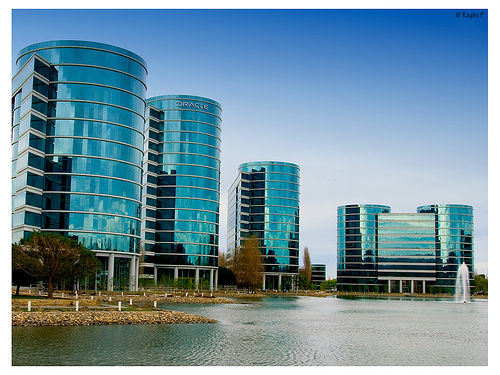
Operating outside the legal jurisdiction of their home state, some multinationals violate human rights or damage the environment in ways that are illegal in their own countries: selling elsewhere what can’t be sold at home.
Swiss agribusiness firm Syngenta’s code of conduct commits it to acting in accordance with “the highest standards of ethics and integrity.” Yet it also sells the highly toxic herbicide Paraquat – forbidden in Switzerland for more than two decades – to developing countries. The consequences are grave: Plantation workers are suffering from skin diseases, poisoning or blindness, and are at greater risk of developing skin cancer or Parkinson’s disease.
Sadly, Syngenta is just one of many examples. The progression of globalization has led to an immense expansion of multinational corporations around the world. As our alternative map of South America highlighted, corporations these days are often bigger economic entities than states themselves. Multi- and trans-national corporations are on the winning side of globalization – but doesn’t power also bring responsibilities along with it? What about the environment and rights of unskilled workers in developing countries?
Business ethicists have tried to address these issues with the concept of corporate social responsibility (CSR). CSR stresses corporate self-regulation and is a voluntary commitment on the part of companies to contribute to sustainable economic, environmental and social development. Such codes of conduct have added to an increased awareness about the responsibilities of firms in doing business – and helped broaden consumer understanding about the implications of their purchase choice.
However, these codes of conduct are only voluntary which means they are hard to monitor and can’t be enforced. They are often of limited scope, addressing only those issues that receive widespread public attention in industrialized countries – sweatshops being one notable example. Many NGOs believe that CSR has failed to prevent multinational corporations from engaging in socially and environmentally destructive practices, and are calling instead for corporate accountability, whereby companies would be legally bound to maintain certain environmental and human rights standards.
Campaigns are underway in a number of countries: In Switzerland, a petition is calling for the enactment of legal provisions to force companies to adhere to Swiss human rights standards worldwide, alongside respecting the global environment. At the European level, the European Coalition for Corporate Justice has brought together organizations that believe that CSR should be embedded in an international legal framework.
If a state manages to hold companies domiciled within its borders accountable for their social and environment practices, it could constitute a very effective foreign policy tool – and be a step toward achieving environmental sustainability. As Ian Johnson pointed out in this week’s ISN podcast, the only way to carefully manage global resources is through developing public policies which price them correctly – that is, including all externalities. Actors, especially those from the private sector, would have to respect these prices and act accordingly. But we also need to be realistic about the likelihood of such a scenario coming to pass. Beside technical problems relating to monitoring and compliance, there’s also a lack of political will for making companies accountable. In order to respect human rights and to protect the environment, companies would have to surrender low production costs and therefore lose some of their comparative advantage; as a consequence, they may move out of a state that strictly regulates companies’ behavior abroad. As old industrialized powers struggle to keep their manufacturing and industrial positions in the world order – as well as trying to deal with the economic crisis and its fallout – countries are unlikely to enact such laws unilaterally any time soon.
With some multinationals wielding more economic power than many states, the only way forward may be for MNCs to promote change themselves. Why not use their power to promote human rights and sustainable development – in return for publicity and glory? Perhaps the only positive aspect of cases like the one of Syngenta is the wider discussion they have stimulated; without an encompassing multilateral framework, pressure from civil society may be the only hope to encourage steps in the right direction.


One reply on “Multinationals: Power and Responsibility”
There’s an interesting piece on the Huffington Post about a ‘mystery disease’ which is affecting thousands of manual laborers in Nicaragua – experts are arguing whether it is due to herbicides and/or pesticides, or whether dehydration is the underlying cause…
http://www.huffingtonpost.com/2012/02/12/mystery-disease-central-america_n_1272286.html